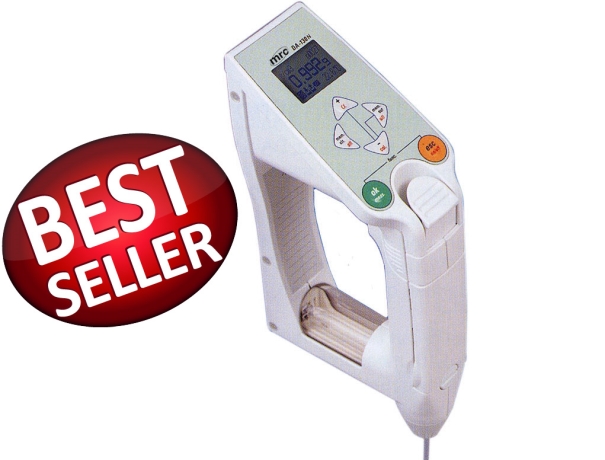MUNRO provides a huge range of Measuring Instruments for industry and laboratory. Reliable and accurate Meters. Assorted selection of Meters.Water Quality, Air Quality, Temperature, Humidity, Meteorologic, Plant Maintenance, Health & Safety, Electric, Mechanic, Gases, Airflow, Sound, Light, Tachometer.
Types of Measuring Instruments
Measuring instruments are categorized into various types depending on their applications. Some common types of measuring instruments used in the UK include:
Length Measuring Instruments
Length measuring instruments are used to measure the length of an object accurately. Some common length measuring instruments used in the UK include:
- Rulers
- Calipers
- Micrometers
- LCR METERS
Temperature Measuring Instruments
Temperature measuring instruments are used to measure the temperature of an object or environment accurately. Some common temperature measuring instruments used in the UK include:
- Thermometers
- Thermal imaging cameras
- Infrared thermometers
- HUMIDITY TEMPERATURE METERS
Pressure Measuring Instruments
Pressure measuring instruments are used to measure the pressure of gases and liquids accurately. Some common pressure measuring instruments used in the UK include:
- Barometers
- Pressure gauges
- Vacuum gauges
- VIBRATION METERS
Flow Measuring Instruments
Flow measuring instruments are used to measure the flow rate of liquids and gases accurately. Some common flow measuring instruments used in the UK include:
- Flow meters
- Ultrasonic flow meters
- Heat Flow Plates
Electrical Measuring Instruments
Electrical measuring instruments are used to measure electrical properties such as voltage, current, and resistance accurately. Some common electrical measuring instruments used in the UK include:
- Multimeters
- Oscilloscopes
- Clamp meters
Applications of Measuring Instruments
Measuring instruments are used in various industries for different applications. Some common applications of measuring instruments in the UK include:
Construction
Measuring instruments such as tape measures, laser distance meters, and levels are used in the construction industry to ensure accuracy and precision in building structures.
Engineering
Measuring instruments such as micrometers, calipers, and gauges are used in engineering to ensure accurate measurements in the manufacturing of products and components.
Manufacturing
Measuring instruments such as flow meters, pressure gauges, and thermometers are used in manufacturing to ensure quality control and accurate measurements in the production of goods.
Scientific Research
Measuring instruments such as oscilloscopes, spectrometers, and thermocouples are used in scientific research to obtain accurate data and measurements in various fields such as physics, chemistry, and biology.

Importance of consumption and calibration of Measuring Instruments
Measuring instruments are critical tools used in various industries to obtain accurate and reliable measurements of physical properties such as length, temperature, pressure, and electrical properties. However, over time, these instruments may become inaccurate or drift from their calibration, leading to incorrect measurements and potentially affecting the quality of products or services produced. Therefore, it is essential to consume and calibrate measuring instruments regularly to ensure their accuracy and reliability.
Consumption refers to the use of measuring instruments according to their intended purpose and specifications. It involves using the instruments in the right conditions and following the manufacturer's instructions. Failure to consume measuring instruments correctly may lead to errors in measurements, resulting in inaccurate data and potentially affecting the quality of products or services produced. Therefore, it is critical to train personnel who handle measuring instruments to ensure they understand their proper usage.
Calibration, on the other hand, refers to the process of comparing the readings of a measuring instrument to a known standard to determine its accuracy. Calibration involves adjusting the instrument to eliminate any errors and ensure its readings are within the required tolerance levels. Calibration is essential, especially for instruments used for trade or legal purposes, to ensure that they meet the required regulatory standards. Regular calibration ensures that measuring instruments remain accurate and reliable and can produce consistent measurements.